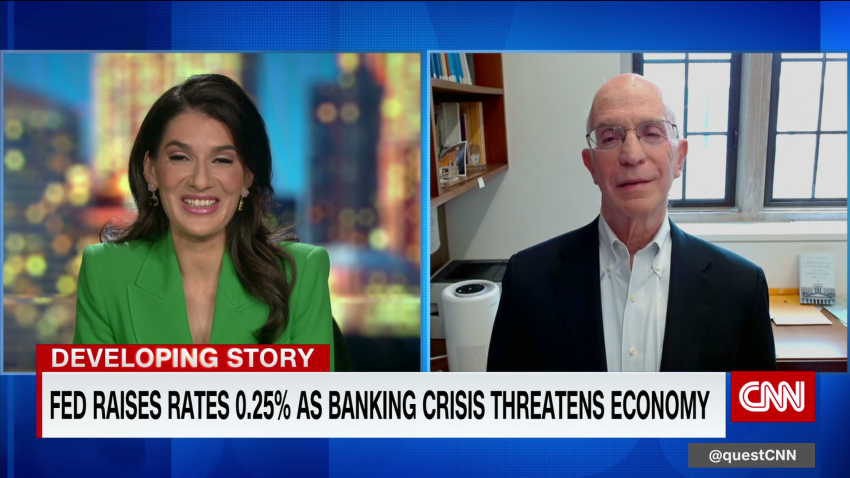Confidence in the US economy ticked up in March, despite the sudden turmoil in the banking industry, according to the latest report from the Conference Board.
The business group’s Consumer Confidence Index increased to 104.2 in March from an upwardly revised reading of 103.4 the month before.
Economists were expecting a reading of 101, according to Refinitiv.
The March headline index saw a boost from consumers’ improved levels of confidence for the six-month-ahead time frame. The Expectations Index increased to 73 from 70.4 in February, while the Present Situation Index dipped to 151.1 from 153.
The survey had a cutoff date of March 20, about 10 days after state and federal regulators closed Silicon Valley Bank.
“Despite having been buffeted by the news headwinds on the evolving bank crisis in recent days, consumers have not lost confidence and expect better days lie ahead,” Chris Rupkey, chief economist for FwdBonds, said in a statement Tuesday.
“Additional banks have not failed and consumers generally feel their money in the bank is safe for now,” he said. “Fed officials backed away from more aggressive action on rates at last week’s meeting expecting that tighter credit conditions following the banking panic could slow economic growth in the future.”
A reading below 80 on the Conference Board’s Expectations Index often signals that a recession will occur within the next year.
“The share of consumers saying jobs are ‘plentiful’ fell, while the share of those saying jobs are ‘not so plentiful’ rose,” said Ataman Ozyildirim, the Conference Board’s senior director of economics, in a statement. “The latest results also reveal that their expectations of inflation over the next 12 months remain elevated — at 6.3%. Overall purchasing plans for appliances continued to soften while automobile purchases saw a slight increase.”
In the survey, the business and research group also asked a new question about service industry spending during the coming six months. Respondents said they planned to spend less on activities such as gambling, amusement park and museum visits, travel and the movies. The largest categories for spending increases include health care, household maintenance and car repair.
The services sector has become an area of focus for the Federal Reserve as it seeks to tamp down inflation.
As the economy recovered from the pandemic last year, consumers shifted spending from goods to services and out-of-home experiences. At the same time, the leisure and hospitality and other related industries struggled to fully recapture the massive job losses during the pandemic. An increase in some wages, combined with continued labor shortages, has triggered concern among Fed officials, who worry that could put upward pressure on inflation.
At the same time, consumer spending helps to drive the US economy, so central bankers and economists alike are closely watching how much those expenditures fall.
The Conference Board’s confidence index and the University of Michigan’s twice-a-month consumer sentiment index are two leading gauges of consumers’ attitudes toward the current and future strength of the economy. Although the two indexes typically track similarly over time, the consumer confidence index is more influenced by employment and labor market conditions, while the Michigan sentiment index has a greater emphasis on household finances and the impact of inflation.






